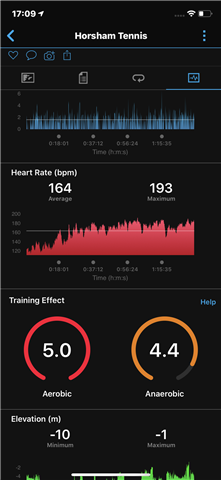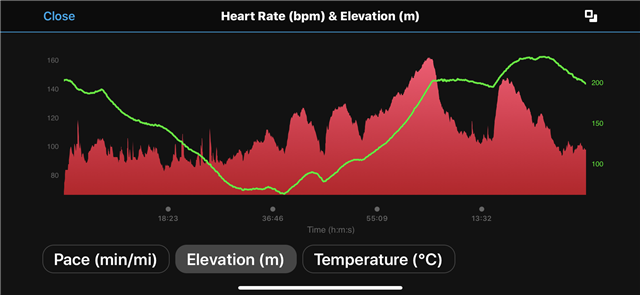Both Garmin and Fitbit think I’m pretty fit - Vo2 max of 43 and 48 respectively and a resting heart rate of 50 or so. So far so good. But when I exercise my heart rate seems to increase very quickly and to a high level - 2 hours of tennis and my average hr (with Garmin chest strap) is 164 and max 193. That’s not good for a 60 year old if I use the 220 - age formula!! I smoked for 35 years but quit 10 years ago. Maybe my heart is good but lungs poor? So anyway am I fit or unfit, can anyone explain the high exercise hr but low RHR and good Vo2 max?




